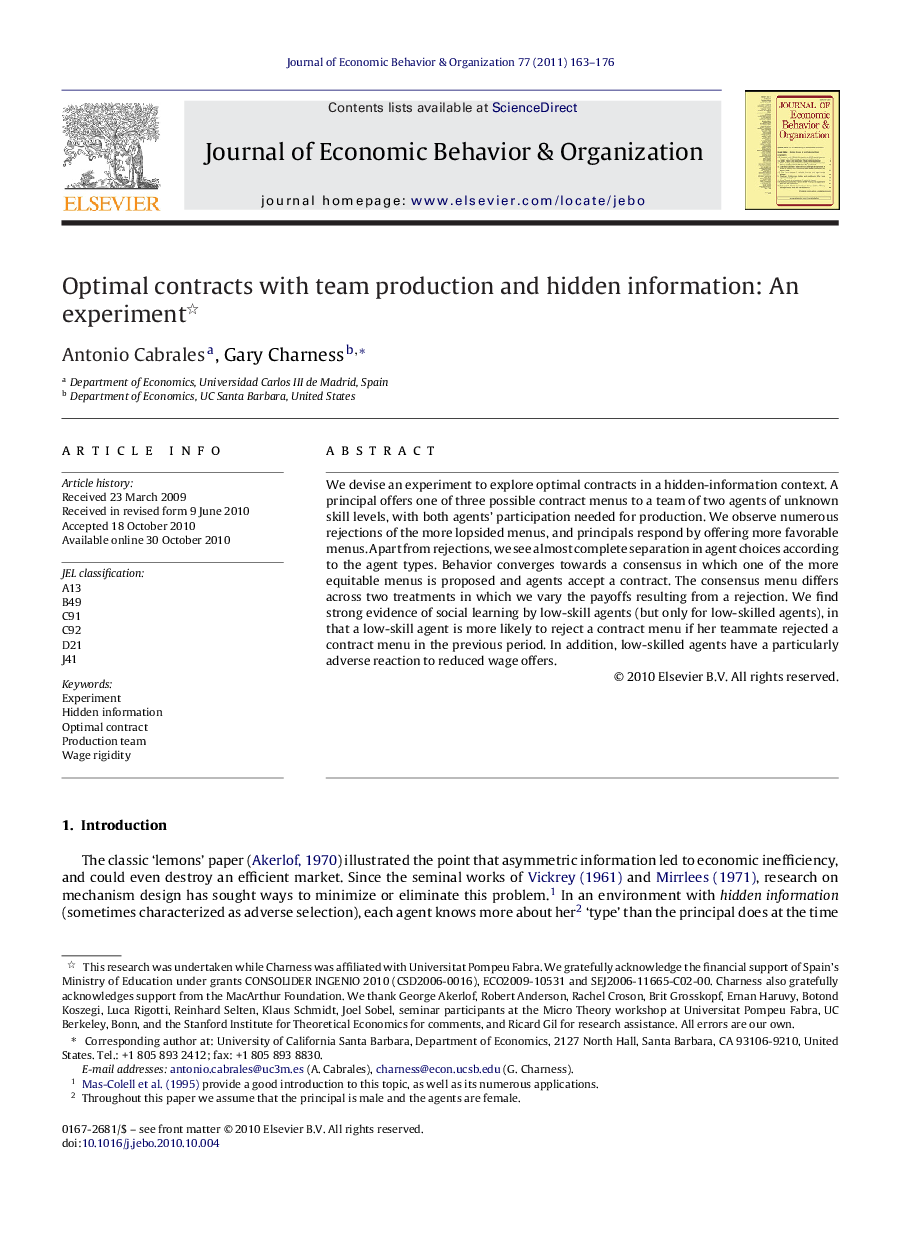| Article ID | Journal | Published Year | Pages | File Type |
|---|---|---|---|---|
| 884041 | Journal of Economic Behavior & Organization | 2011 | 14 Pages |
We devise an experiment to explore optimal contracts in a hidden-information context. A principal offers one of three possible contract menus to a team of two agents of unknown skill levels, with both agents’ participation needed for production. We observe numerous rejections of the more lopsided menus, and principals respond by offering more favorable menus. Apart from rejections, we see almost complete separation in agent choices according to the agent types. Behavior converges towards a consensus in which one of the more equitable menus is proposed and agents accept a contract. The consensus menu differs across two treatments in which we vary the payoffs resulting from a rejection. We find strong evidence of social learning by low-skill agents (but only for low-skilled agents), in that a low-skill agent is more likely to reject a contract menu if her teammate rejected a contract menu in the previous period. In addition, low-skilled agents have a particularly adverse reaction to reduced wage offers.
